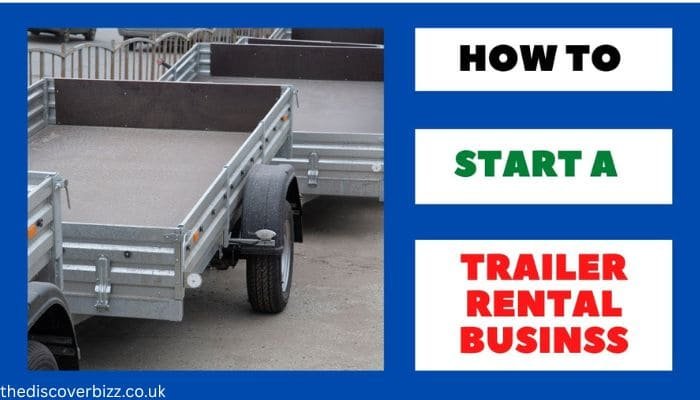How to Start a Trailer Rental Business? A Complete Guide
how to start a trailer rental business Establishing a business can be rewarding, especially in a sector with consistent demand, such as trailer rentals. Trailers serve as essential tools for individuals and businesses involved in transporting goods, construction materials, or personal belongings. This article provides a comprehensive guide to starting a trailer rental business, covering key aspects from initial investment and planning through to marketing strategies and growth opportunities.
- Understanding the importance of the trailer rental market is crucial.
- The market is growing due to increasing transportation needs.
- There is a high demand for trailers in industries such as construction, farming, and logistics.
- Renting is preferred over buying to save costs and space.
- Well-maintained trailers can generate income over a long period.
- A properly planned trailer rental business offers steady cash flow and financial security.
How to Start a Trailer Rental Business?
- Market Research: Conduct thorough research to identify target customers (e.g., individuals, construction companies, farmers), competitors, and demand for rental services in the area.
- Business Plan: Create a detailed business plan including business model, trailer types, pricing strategy, startup costs, and revenue projections.
- Legal Requirements: Ensure compliance with legal obligations such as business licenses, insurance, permits, and drafting contracts.
- Acquire Trailers: Start with a diverse fleet of durable trailers, choosing between buying new or leasing used trailers, while maintaining regular inspections for longevity.
- Location and Storage: Select a visible, accessible site with secure storage options for trailers and related equipment.
- Marketing Strategy: Develop an effective marketing strategy that includes building a professional website, utilizing social media, local advertising, and maintaining a Google Business Profile for visibility.
- Operations Management: Implement rental management software, train staff, provide excellent customer service, and maintain accurate financial records to streamline operations.
- Scaling and Expansion: Explore growth opportunities through adding specialized trailers, expanding locations, offering delivery services, and forming partnerships with other businesses.
Common Challenges
Every business has its hurdles. Some common challenges in trailer rentals include:
- High maintenance costs: Solve this with regular inspections and preventive care.
- Damage or theft: Secure storage and good insurance help minimize risks.
- Seasonal demand: Diversify your customer base to balance off-peak seasons.
- Competition: Stand out with excellent service, fair pricing, and customer loyalty programs.
Preparation and planning will help you overcome these challenges effectively.
If you are considering starting a trailer rental business, the process can be manageable with the right approach. Essential steps include conducting thorough research, developing a comprehensive business plan, ensuring legal compliance, acquiring quality equipment, and implementing effective marketing strategies. It is crucial to begin with a small scale, maintain consistency in operations, and prioritize customer satisfaction to foster a profitable and sustainable business.
Conclusion
In conclusion, launching a trailer leasing company can be profitable through careful preparation, wise investment, and steady management. Success relies on well-maintained trailers, regulatory compliance, and thorough market research. Challenges like seasonal demand and competition can be mitigated with strong customer service and preventative strategies, while prioritizing customer satisfaction and effective marketing can lead to consistent revenue and growth in a market with increasing transportation demands. Read More
Share this content:














Post Comment